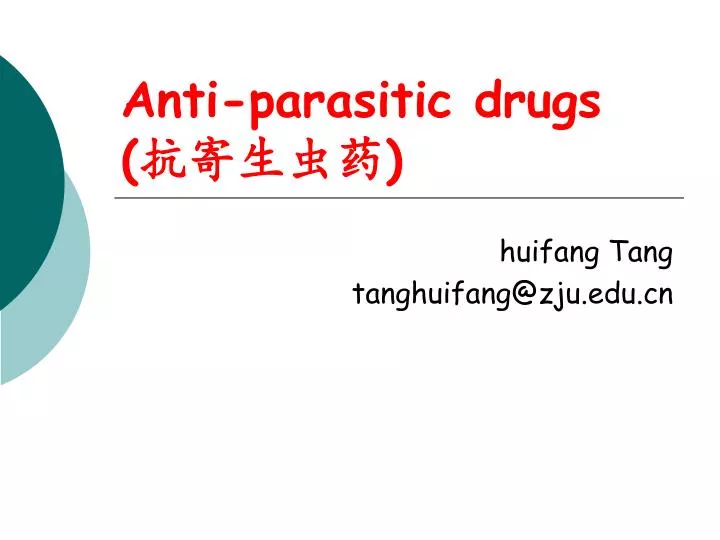

Good hygiene is the best way to prevent giardiasis. Medicines to prevent vomiting or diarrhoea should not be given, especially to children, except when prescribed by a doctor. Anyone with prolonged or severe diarrhoea or who have symptoms causing concern should see a doctor.
#Antibiotic for parasite infection plus#
If children refuse this solution, dilutedįruit juice drinks may be given (1 part juice to 4 parts water).īabies should continue to be offered their normal feeds plus extra fluids in between feeds.Ĭhildren with diarrhoea, who vomit or who refuse extra fluids should see a doctor. Rehydration therapy with oral glucose / electrolyte solution is particularly effective. Anyone with vomiting or diarrhoea should drink extra fluids to avoid dehydration. Management focuses on preventing and treating dehydration caused by vomiting or diarrhoea.

Antibiotics such as tinidazole or metronidazole may be prescribed. TreatmentĪnyone with symptoms suggestive of giardiasis should be seen by a doctor. Travellers to developing countries or remote communities where sanitation and hygiene standards are poor are at higher risk of contracting giardiasis. from creeks or billabongs) or swimming in bodies of freshwater increase the risk of contracting giardiasis. Spread occurs when children share toys or food that has become contaminated and place it in their mouths.ĭrinking unfiltered surface water (e.g. Children who attend childcare facilities are at greater risk of infections spread through faecal contamination. Who is at riskĬhildren are infected more frequently than adults. Some people may ‘carry’ the parasite in their bowel after the symptoms have resolved or they may not have had any symptoms at all. While the Giardia parasite remains in their faeces, infected people can pass the infection on to others. Some infected people may have no symptoms at all.

The diagnosis of Giardia is confirmed by testing stools in the laboratory. Symptoms of giardiasis include sudden onset of diarrhoea or foul smelling, pale, greasy stools (bowel action), stomach pains, bloating, loss of appetite, nausea, fatigue, weight loss, or poor weight gain in infants. The symptoms develop between 3 to 25 days or longer after infection, most commonly 7 to 10 days. Giardia is not present in household drinking water in the Northern Territory. Spread may also occur by ingesting Giardia from recreational water, drinking water or food contaminated by animal or human faeces. Person to person spread occurs by eating food that has been contaminated by very small amounts of faeces from an infected person. Lamblia (also known as Giardia intestinatis). Giardiasis is a bowel infection caused by the parasite Giardia


 0 kommentar(er)
0 kommentar(er)
